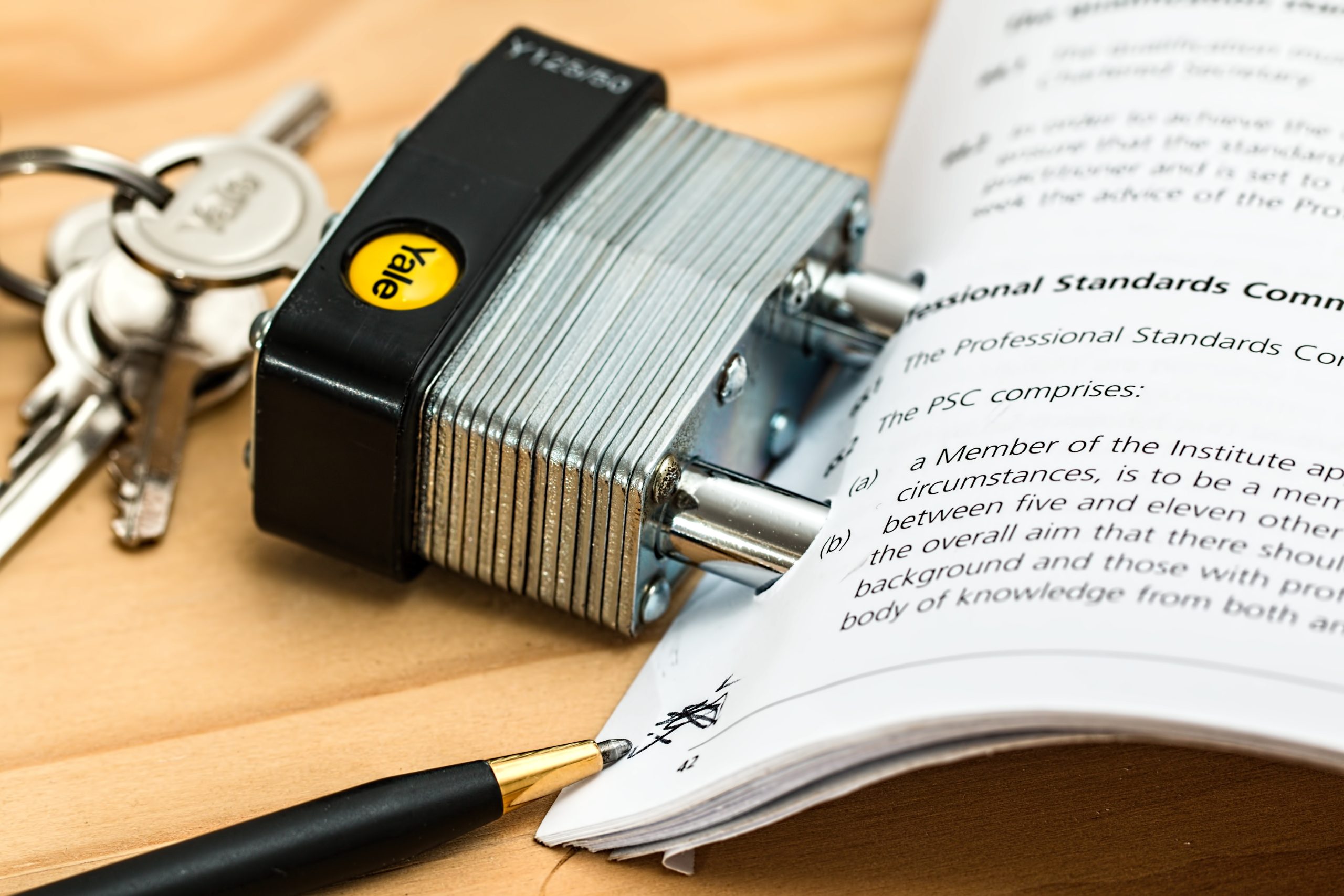 One tool courts can use to manage litigation is a Special Master. A Special Master issues reports that a court can consider when ruling on a case. However, what happens if a court disregards the recommendations in a Special Master’s report? This situation raises intriguing questions about the authority and discretion of the court, leaving us to ponder the implications of such actions, as discussed in the case below.
One tool courts can use to manage litigation is a Special Master. A Special Master issues reports that a court can consider when ruling on a case. However, what happens if a court disregards the recommendations in a Special Master’s report? This situation raises intriguing questions about the authority and discretion of the court, leaving us to ponder the implications of such actions, as discussed in the case below.
Two attorneys – Patrick Kehoe, Jr. and Michael Rodriguez – entered into an oral fee-sharing agreement. Under the agreement, Rodriguez would receive half of the fees on personal injury cases from Kehoe that were resolved in trial or settled. Kehoe would finance the cases, and Rodriguez performed the required legal work.
Rodriguez had to go to an inpatient facility because of his alcoholism. When he entered treatment, he had approximately sixteen unresolved cases. Rodriguez never returned to working with Kehoe. Rodriguez sought payment for his work on the sixteen unresolved cases. Kehoe proposed a fee-split agreement where Rodriguez would receive 20% of the collected attorney’s fees. Rodriguez at first rejected the proposal but later agreed to it. However, Rodriguez and Kehoe continued to dispute the fees owed.
 Insurance Dispute Lawyer Blog
Insurance Dispute Lawyer Blog


 Imagine, for a moment, you’re organizing a large-scale event with a long checklist of details to manage. Now imagine missing one tiny detail and having it cost you a whopping quarter-million dollars! That’s precisely the scenario that unfolded for Star Financial Services, Inc., a prominent ATM operator, in their dealings with Cardtronics, USA, Inc. The United States Court of Appeals for the Fifth Circuit reversed the District Court’s grant of summary judgment in favor of Cardtronics.
Imagine, for a moment, you’re organizing a large-scale event with a long checklist of details to manage. Now imagine missing one tiny detail and having it cost you a whopping quarter-million dollars! That’s precisely the scenario that unfolded for Star Financial Services, Inc., a prominent ATM operator, in their dealings with Cardtronics, USA, Inc. The United States Court of Appeals for the Fifth Circuit reversed the District Court’s grant of summary judgment in favor of Cardtronics. We all cherish the idea of collecting vacation days, envisioning the blissful trips we’ll take in the future. But what if you find yourself resigning from your job with a surplus of accrued vacation days that you haven’t had the chance to use?
We all cherish the idea of collecting vacation days, envisioning the blissful trips we’ll take in the future. But what if you find yourself resigning from your job with a surplus of accrued vacation days that you haven’t had the chance to use?  The separation of property between spouses is a legally recognized process, allowing them to transfer assets. However, what happens when this separation is done with fraudulent intent? In the case of Kathryn and Paul Holland, creditors accused the couple of fraudulently dividing their assets to avoid payment. The creditors filed a motion to intervene in the divorce proceedings, alleging that the Hollands knew about pending civil lawsuits against them. Despite their objections, the trial court granted the motion filed by Ms. Holland, prompting the creditors to appeal the decision. The following post summarizes the appeal.
The separation of property between spouses is a legally recognized process, allowing them to transfer assets. However, what happens when this separation is done with fraudulent intent? In the case of Kathryn and Paul Holland, creditors accused the couple of fraudulently dividing their assets to avoid payment. The creditors filed a motion to intervene in the divorce proceedings, alleging that the Hollands knew about pending civil lawsuits against them. Despite their objections, the trial court granted the motion filed by Ms. Holland, prompting the creditors to appeal the decision. The following post summarizes the appeal.  We have all heard that “good fences make good neighbors.” But what happens when there is a dispute about the boundary of two pieces of property? The following conflict between New Fellowship Baptist Church and the Beals, who found themselves at odds over the boundary of their adjoining properties, helps answer this question. The dispute raises questions about the concept of acquisitive prescription, the importance of possession, and the determination of boundaries. By carefully examining the trial and appellate court’s rulings, we gain insights into the legal principles and the significance of seeking professional advice in property-related conflicts.
We have all heard that “good fences make good neighbors.” But what happens when there is a dispute about the boundary of two pieces of property? The following conflict between New Fellowship Baptist Church and the Beals, who found themselves at odds over the boundary of their adjoining properties, helps answer this question. The dispute raises questions about the concept of acquisitive prescription, the importance of possession, and the determination of boundaries. By carefully examining the trial and appellate court’s rulings, we gain insights into the legal principles and the significance of seeking professional advice in property-related conflicts. Safeguarding your property rights is of utmost importance, as the consequences of inadequate protection can be far-reaching. While oil and gas rights disputes may not directly affect the average citizen, other property-related conflicts can significantly impact individuals and their assets. In such complex situations, navigating the intricacies of property laws requires the expertise of an experienced attorney who can empower you with a clear understanding of your rights, ensure the legal protections you are entitled to, and advocate on your behalf. The following lawsuit shows the importance of expert counsel in understanding your property rights.
Safeguarding your property rights is of utmost importance, as the consequences of inadequate protection can be far-reaching. While oil and gas rights disputes may not directly affect the average citizen, other property-related conflicts can significantly impact individuals and their assets. In such complex situations, navigating the intricacies of property laws requires the expertise of an experienced attorney who can empower you with a clear understanding of your rights, ensure the legal protections you are entitled to, and advocate on your behalf. The following lawsuit shows the importance of expert counsel in understanding your property rights.  Experiencing termination from your job is a difficult situation, especially when it feels unjust. Scott Poiencot faced this unfortunate circumstance when he was terminated from his position as a police officer in the
Experiencing termination from your job is a difficult situation, especially when it feels unjust. Scott Poiencot faced this unfortunate circumstance when he was terminated from his position as a police officer in the  Parties in conflict often prefer out-of-court dispute resolution. Although these agreements made outside the courtroom are appealing, they come with their slew of issues and may require a courtroom to enforce an out-of-court solution. When a deal outside the courtroom requires a court to intervene, how does that court decide whether to enforce the settlement agreement? And in the era of virtual communication and remote dispute resolution, how can a court decide when virtually made agreements are enforceable and binding on the parties?
Parties in conflict often prefer out-of-court dispute resolution. Although these agreements made outside the courtroom are appealing, they come with their slew of issues and may require a courtroom to enforce an out-of-court solution. When a deal outside the courtroom requires a court to intervene, how does that court decide whether to enforce the settlement agreement? And in the era of virtual communication and remote dispute resolution, how can a court decide when virtually made agreements are enforceable and binding on the parties? If an individual is unable to care for themself or manage their financial or business affairs, legal intervention in the form of interdiction may be appropriate. If a court finds interdiction to be warranted, it may assign another person to make decisions for the disabled. The following case demonstrates when a court may deny an interdiction assertion.
If an individual is unable to care for themself or manage their financial or business affairs, legal intervention in the form of interdiction may be appropriate. If a court finds interdiction to be warranted, it may assign another person to make decisions for the disabled. The following case demonstrates when a court may deny an interdiction assertion.  Premises liability is an active area of personal injury law, and accidents occurring on public property are no exception. The question often arises, who is liable for a slip and fall on a public sidewalk? In this case, the Louisiana Third Circuit Court of Appeal was asked to determine the premises liability of the town of Lake Arthur for a fall occurring on a public sidewalk built and maintained by this public entity.
Premises liability is an active area of personal injury law, and accidents occurring on public property are no exception. The question often arises, who is liable for a slip and fall on a public sidewalk? In this case, the Louisiana Third Circuit Court of Appeal was asked to determine the premises liability of the town of Lake Arthur for a fall occurring on a public sidewalk built and maintained by this public entity.